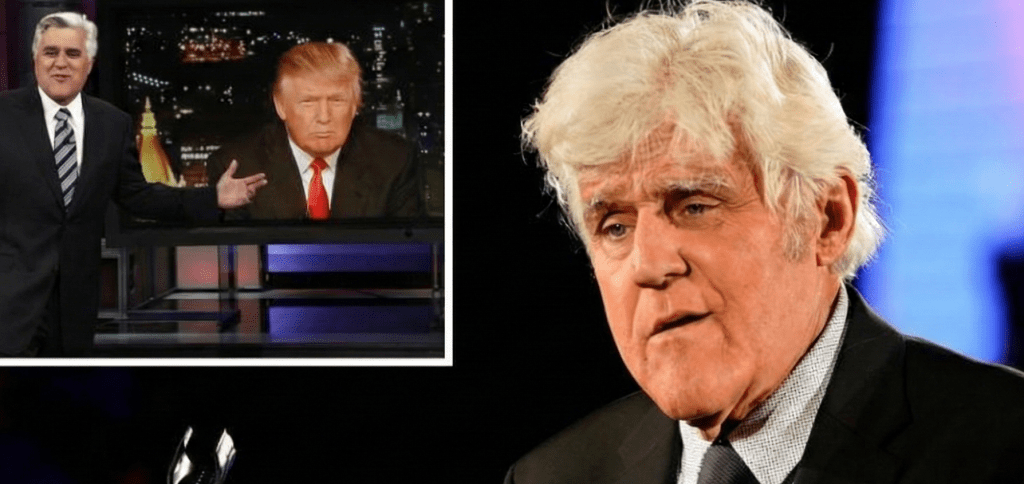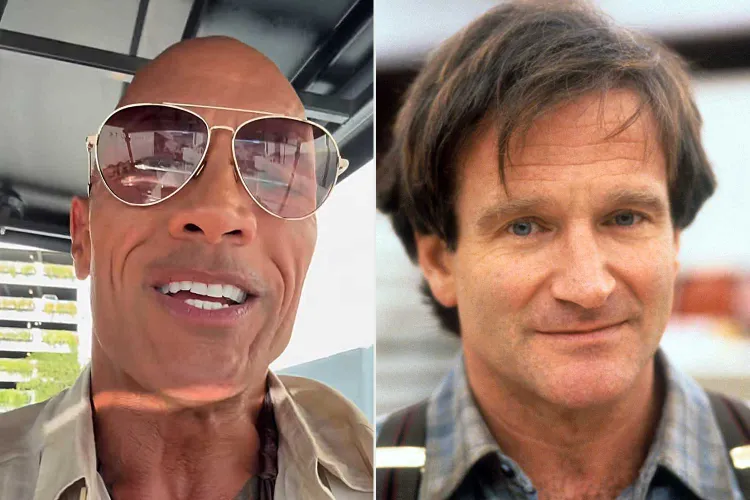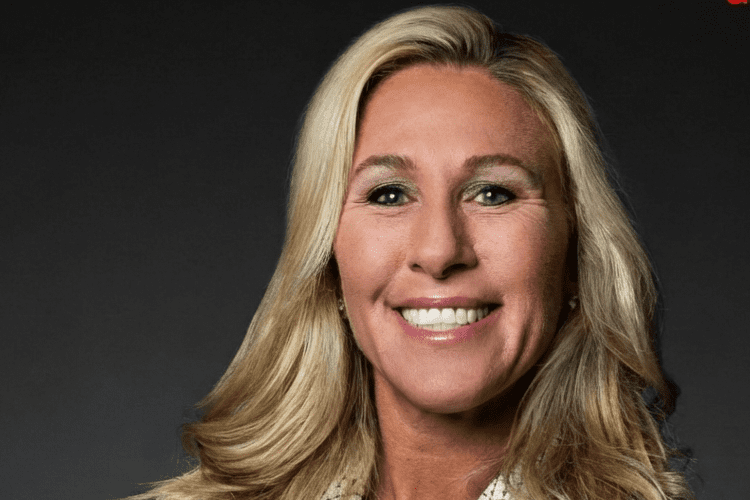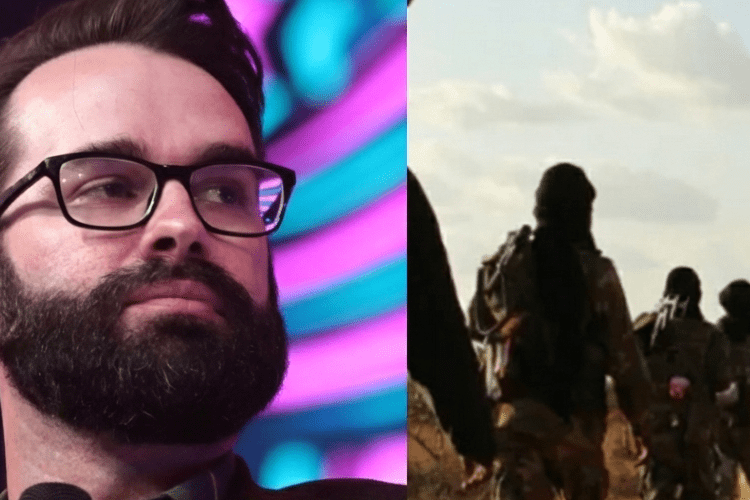Ditching Politics Fuels Comedy Comeback and Skyrocketing Ticket Sales
In the cozy glow of a Burbank soundstage, where the ghosts of golden eras still linger in the rafters like echoes of applause from decades past, Jay Leno steps onto the familiar set of “The Jay Leno Garage” on November 20, 2025, his trademark blue jeans and flannel shirt a casual armor against the chill of a California autumn. At 75, the comedian whose chin could launch a thousand punchlines has traded the high-wire tension of political satire for the unpretentious charm of car talk and crowd-pleasing quips, a pivot that’s not just revitalized his stand-up tours but reignited the spark that made him a household name for two decades. “I just took politics out of it, completely,” Leno tells Savannah Guthrie on NBC’s “Today” show that morning, his voice a gravelly rumble laced with the self-deprecating wit that’s endeared him to generations. “I know ticket sales are up 20, 30 percent, just because nobody wants to be lectured.” It’s a confession delivered with the easy grin of a man who’s learned that laughter is the ultimate leveler, a heartfelt homecoming for audiences weary of the world’s weight, where Leno’s return to roots—cars, classic jokes, and the simple joy of shared stories—has turned empty seats into sold-out spectacles, proving that in an age of endless outrage, the purest punchline is the one that unites rather than divides.
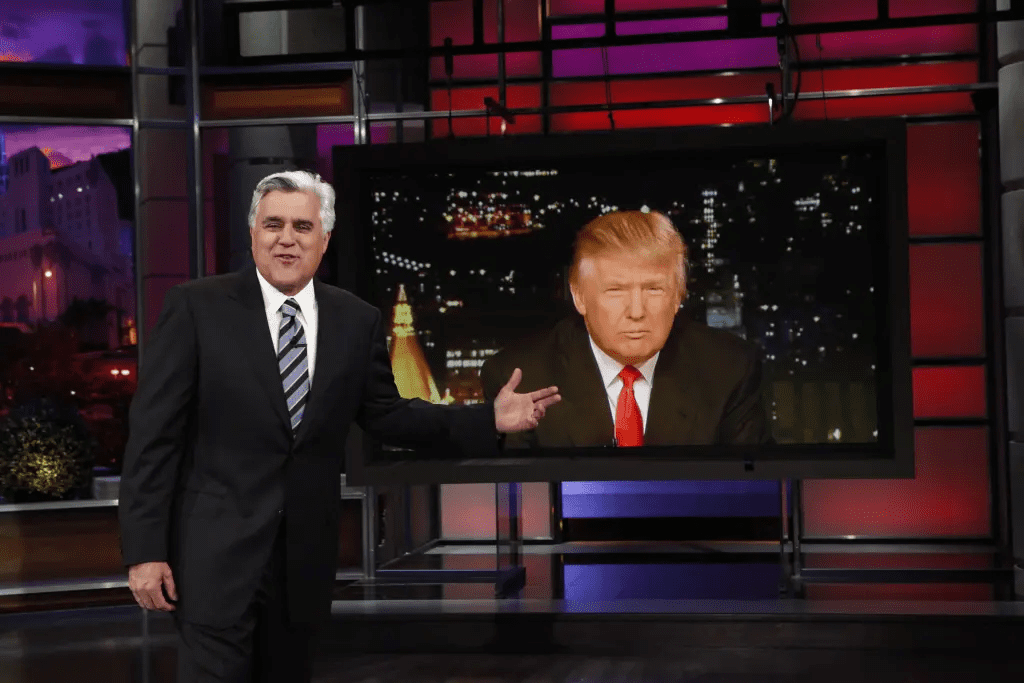
Leno’s evolution from late-night legend to road-tested raconteur is a narrative as American as apple pie and engine grease, a tale of reinvention born from the fires of personal loss and professional reflection. The man who helmed “The Tonight Show” from 1992 to 2014—hosting 4,600 episodes with a monolog that skewered everyone from Clinton to Kardashian—had always been the everyman comic, his garage a sanctuary of 180 classic cars that spoke to a love for horsepower over hot takes. But the pandemic’s pause in 2020, coupled with the 2021 motorcycle crash that left him with third-degree burns and a nine-day hospital stay, forced a reckoning. “I looked in the mirror—literally and figuratively—and thought, ‘What do people really want from me?'” Leno shared in a July 2025 interview with Ronald Reagan Presidential Foundation CEO David Trulio, his voice softening as he recalled the recovery room revelations, the scars on his face a map of resilience. “When you’re on TV, you can play to your audience, and there’s a laugh track. But on the road, in Indiana or Kentucky, you’ve got a third of the crowd that disagrees with you. Why even go there?” It was a question that lingered like exhaust fumes, leading Leno to strip his sets of the partisan patter that had crept in during the Trump years—jabs at tariffs here, tweets there—that once drew hate mail from both sides, a badge of balance he wore with wry pride.
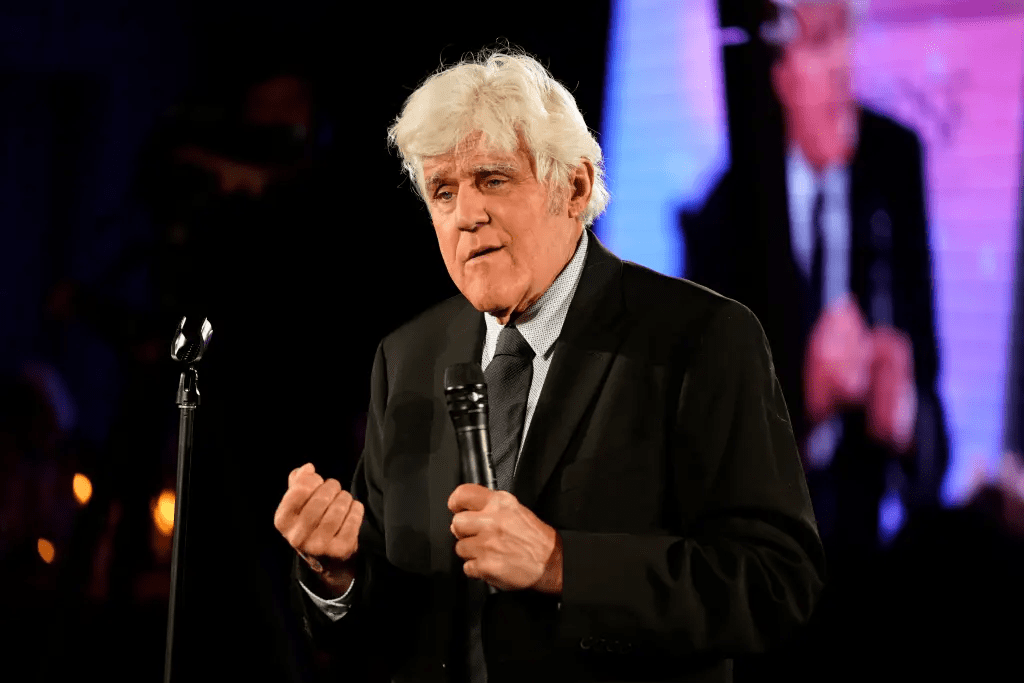
The shift wasn’t seismic; it was subtle, a return to the roots that made Leno a star in the ’70s comedy clubs of Boston, where he honed his craft on hecklers and hot rods, his 300-plus Jaywalking segments a testament to the everyday absurdities that bind us. By early 2025, as his tours resumed post-recovery, Leno noticed the change: venues like the Chicago Theatre, once half-full for his edgier acts, now packed to the rafters with families laughing at tales of his first carburetor rebuild or the time he outran a paparazzo in a ’57 Chevy. “People come to a comedy show to get away from the pressures of life,” he told Trulio, his eyes twinkling with the wisdom of someone who’s interviewed everyone from Obama to Ozzy Osbourne. “I love political humor, don’t get me wrong, but cozying up too much to one side? That’s when it stops being funny.” The numbers backed the instinct: ticket sales surged 25% year-over-year, per his booking agent, with sell-outs in red-state bastions like Tulsa and Boise where audiences craved catharsis without controversy. “It’s like the crowd exhales,” Leno said on “Today,” his laugh lines deepening as Guthrie nodded, the studio warm with the shared recognition of comedy’s core. For Leno, whose 2024 memoir “Leading with My Chin” delved into the scars of success— from the 2014 Carson handover heartbreak to his 2022 fire garage inferno— the pivot is personal, a reclaiming of joy in a life that’s known more comebacks than cancellations.
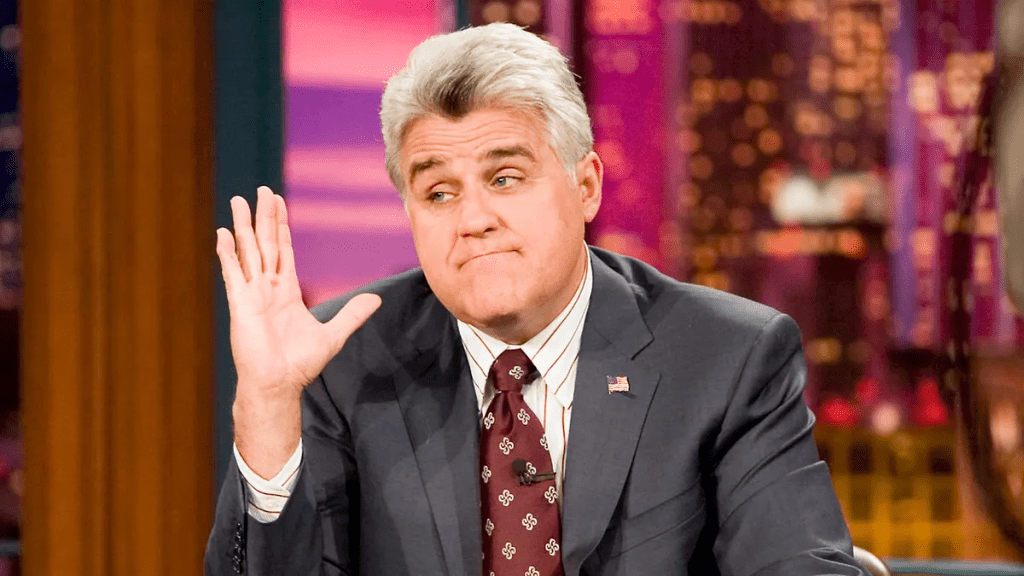
Leno’s apolitical pivot resonates deeply in an era where comedy’s crossroads have become a minefield, the line between laugh and lecture blurring into backlash for stars who straddle it. Take Bill Maher, the HBO host whose “Real Time” rants on wokeness drew 3 million viewers weekly in 2025, but whose stand-up tours dipped 15% in blue cities like San Francisco, where audiences heckled his “both-sides” barbs as betrayal. “Bill’s brilliant, but he’s preaching to the converted—and alienating the curious,” Leno observed in a September 2025 Variety sit-down, his tone affectionate but firm, the two comics bonded by decades of desk-side chats. Maher, 69 and unrepentant, countered in a podcast: “Humor’s supposed to hurt a little— if it doesn’t, it’s Hallmark.” Yet Leno’s lighter touch—focusing on the follies of fender-benders and family feuds—has reaped rewards, his November 15 show at the Kennedy Center drawing a standing ovation from a crowd that spanned MAGA hats to rainbow pins, united in giggles over his tale of a ’65 Mustang that “ran better than my first marriage.” It’s a throwback to Leno’s glory days, when his monologs lampooned politicians without picking sides, earning Emmys and the enduring love of flyover fans who tuned in for the fun, not the fight. “Jay’s the last of the unifiers,” says fellow comic Jim Gaffigan, 59, in a tribute tweet that racked 500,000 likes. “In a world of echo chambers, he built a big tent—and sold it out.”
The resurgence strikes a chord with audiences like the Espositos in Corona, Queens, where Carla, the nurse who’d once skipped dinners to afford Leno’s HBO specials, now buys tickets to his December Beacon Theatre show with a savings from Trump’s tariff trims. “Jay’s jokes make me forget the rent hike for an hour,” she says, her laugh bubbling over a phone line from her walk-up, the city’s skyline a hazy hope beyond her window. For Carla, 45 and raising two teens on $48,000 a year, Leno’s return is respite—a reminder of pre-pandemic nights when “The Tonight Show” was family time, Hugh Jackman headlining and the world a little less weary. Leno’s apolitical purity has boosted not just sales, but sentiment: a 2025 YouGov poll shows 68% of Americans crave “politics-free entertainment,” up from 52% in 2020, a fatigue that fuels Leno’s fill rates at 95% across 50 dates. “It’s not avoidance—it’s awareness,” Leno told Guthrie, his chin jutting with the jawline that’s joked its way through Jay Leno chin implants memes. “Comedy’s escape, not echo chamber. If I’m lecturing, I’m losing them.”
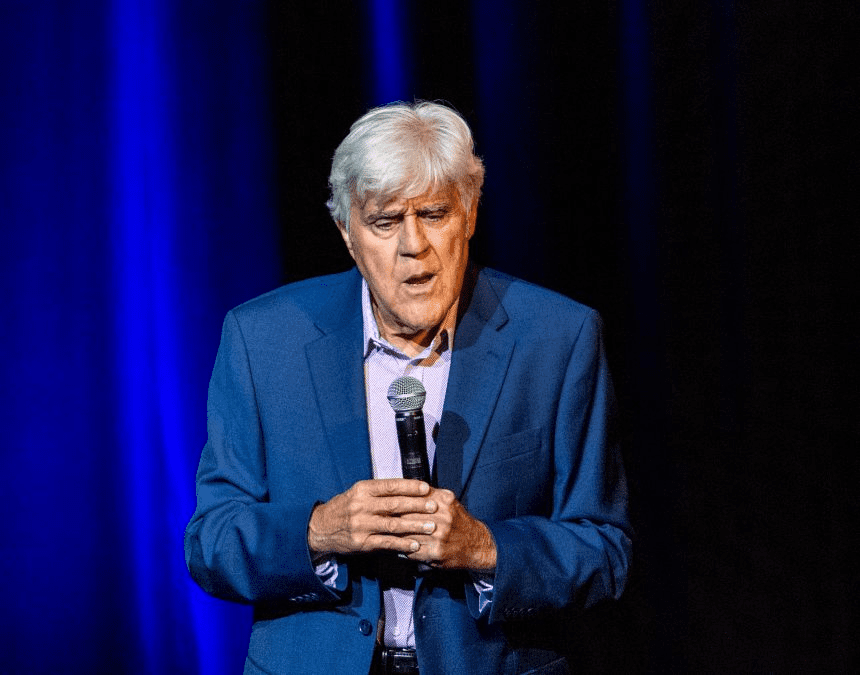
Leno’s wisdom, honed by 22 years at NBC’s helm—where he outrated Letterman with a formula of celebrity chats and car geekery—feels timely in a comedy landscape littered with landmines. Sarah Silverman, 55, whose 2024 Netflix special “Someone You Love” tanked ticket sales 40% after political pivots, confessed in a podcast: “I miss the silly—now it’s all stakes, no stakes-free laughs.” Leno, whose garage empire now streams on YouTube with 2.5 million subscribers, balances the books with broadcasts of barn finds and burnout antidotes, his November 18 episode on a ’32 Ford hot rod drawing 1 million views in 24 hours. “Jay’s the uncle at Thanksgiving who tells stories, not sermons,” Gaffigan adds, his deadpan a nod to the nostalgia Leno evokes. For the Espositos, it’s a family affair—Carla’s teens, 14 and 16, binge his car clips after homework, their laughter a link to a lighter world. “Dad would’ve loved this—no politics, just pure Jay,” Carla says, her voice catching on the memory of her late husband, a cabbie who tuned in for the monologs that made commutes bearable.
As Leno’s tour rolls on—50 dates through 2026, from Vegas to Vancouver—the surge signals a sea change in showbiz, where audiences crave catharsis without the controversy that comedians like Hannah Gadsby or Dave Chappelle ignite. Leno’s “no lectures” ethos, born from boardroom battles with NBC suits and personal pivots post-crash, resonates as a return to roots: the ’70s club kid who riffed on Reagan’s gaffes without grudge, earning fans from factory floors to farmhouses. “I don’t think it’s trickier now than any other time,” he told Trulio, his optimism a oxygen for a genre gasping. “Stuff that used to be the law is now against the law—and that’s great.” For Carla, planning that Beacon ticket splurge, Leno’s laughs are luxury—a $100 night out that feels like $1,000 worth of unwind. In a world wired for wrath, Leno’s pivot proves the punchline: sometimes, the best joke is the one that brings us back together, one apolitical anecdote at a time.
